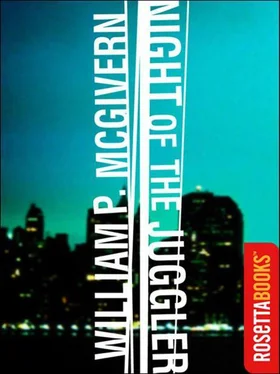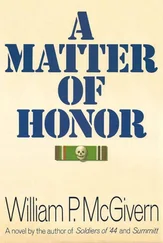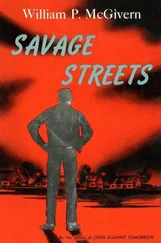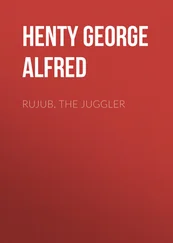William McGivern - Night of the Juggler
Здесь есть возможность читать онлайн «William McGivern - Night of the Juggler» весь текст электронной книги совершенно бесплатно (целиком полную версию без сокращений). В некоторых случаях можно слушать аудио, скачать через торрент в формате fb2 и присутствует краткое содержание. Жанр: Триллер, на английском языке. Описание произведения, (предисловие) а так же отзывы посетителей доступны на портале библиотеки ЛибКат.
- Название:Night of the Juggler
- Автор:
- Жанр:
- Год:неизвестен
- ISBN:нет данных
- Рейтинг книги:3 / 5. Голосов: 1
-
Избранное:Добавить в избранное
- Отзывы:
-
Ваша оценка:
- 60
- 1
- 2
- 3
- 4
- 5
Night of the Juggler: краткое содержание, описание и аннотация
Предлагаем к чтению аннотацию, описание, краткое содержание или предисловие (зависит от того, что написал сам автор книги «Night of the Juggler»). Если вы не нашли необходимую информацию о книге — напишите в комментариях, мы постараемся отыскать её.
Night of the Juggler — читать онлайн бесплатно полную книгу (весь текст) целиком
Ниже представлен текст книги, разбитый по страницам. Система сохранения места последней прочитанной страницы, позволяет с удобством читать онлайн бесплатно книгу «Night of the Juggler», без необходимости каждый раз заново искать на чём Вы остановились. Поставьте закладку, и сможете в любой момент перейти на страницу, на которой закончили чтение.
Интервал:
Закладка:
The black man strode toward the turnstiles, muttering to himself in tones of outrage and indignation while Ransom slumped in shamed dejection on the wooden bench, tears welling in his pain-haunted eyes and the rank taste of bile rising from his condemned and corroded stomach.
There seemed no strength or purpose in the world, no sanity or kindness now, except the unexpected warmth and compassion that had been tendered him by a complete stranger, the big red-haired cop Sergeant Rusty Boyle.
Chapter 18
On that same night Joe Stegg was working alone in the Loeb boathouse a hundred yards or so north of Seventy-fourth Street. During the working day, from nine A.M. to sunset, Joe Stegg and his staff were often too busy supervising the rental of aluminum and wooden boats to keep their books on an hourly basis, and that was why Joe Stegg was still on the job, totaling the last of the day’s receipts.
All in all, however, he savored his work, even the extra time, because he enjoyed instructing the youngsters who rented boats from the park.
They were a good bunch of kids for the most part. They loved the park and took care of it, and it was the rare boy or girl who would throw candy wrappers or orange peels or soft drink cans into the lake.
Stegg had no children himself, and by now-since he was forty-nine-he had grown used to the idea that he and Madge would have to Darby and Joan it alone in some upstate trailer camp when he retired from the park service.
His thoughts were running to children, he surmised, because there was a kid missing in the park tonight, a little girl. Somebody had got hold of her, and by now cops were swarming all over the place.
It was something he couldn’t understand, that anyone would relish hurting a child. But such devils existed, no doubt of it. And appearances told you nothing. They could be men in business suits with briefcases, construction workers in hard hats, or the character with the duck-tailed haircut who parked cars in basements beneath the big office buildings. Any of them could have a devil inside him where you couldn’t see it.
Sometimes when he read of murders and rapes in the city, he was almost glad he didn’t have kids. How could he stand it if it were his daughter missing out there? Or if his son walked home past leather bars and gay joints and got seduced into that scene of perversion and drugs? He could imagine how Madge would crawl the walls if someone tried to hurt a kid of theirs. When their niece came to visit them from Scranton, Madge didn’t let her out of sight unless she was taking a bath or something.
Joe Stegg put his pencil down and closed the ledger he had been posting figures in and at the same time turned and frowned at the closed and locked door of the boathouse.
Joe Stegg switched off the radio, and when the last rock beat faded into silence, he heard it again, the sound which had alerted him, a child’s voice rising in a thin cry of protest or anger.
Stegg rose swiftly, took a.38 Colt revolver from a drawer, snapped off his desk light, and ran through the darkness to the door of the boathouse. Opening it a cautious inch, he saw nothing but black trees streaked by headlights. But then he heard the girl cry out again, and when he flung the door open, he saw them, traveling north on the path, twenty yards from him, a huge, hulking figure of a man in a brown sweater and a girl he was dragging along by the collar of her red jacket.
“Hold it, damn you!” Joe Stegg shouted at the man. He ran along the pathway, the gun steady in his hand. “Let her go, damn you, or I’ll put a hole in your head.”
Gus Soltik screamed in anger and frustration, his voice raging like some primitive, terrified animal. And with that primal bellow, he hurled Kate Boyd aside as effortlessly as he would a rag doll, and when she struck the ground, stars exploding in her head, Gus Soltik rushed at Stegg, taking a bullet in the upper flesh of his left arm, but before Stegg could fire again, Gus Soltik’s fist had crashed into his face, shattering his nose and cheekbones and slamming him with stunning impact against the wooden planks of the boathouse.
Gus Soltik took the gun away from Stegg’s limp hand and beat him across the head with it until splinters of bone pierced Joe Stegg’s brain, ending forever his errant and mortal thoughts of a sheltered trailer camp and the best ways to teach youngsters about currents and winds and weather. .
Gus Soltik lifted Stegg’s lifeless body high above his head and hurled him with all his strength over a link-chain fence into the shallow water near the pier flanking the boathouse. Then, trembling with fear, his mind in a turmoil of terror, he ran to Kate, who lay dazed on the ground, scooped her up in his arms, and ran north toward his sanctuary, the jungles above the immense reservoir.
The echoes of the shot which Joe Stegg had fired at Gus Soltik reverberated south to where Luther Boyd had been traveling in wide circles to pick up a sign of the Wellingtons. Boyd estimated the sound due north of them, and within a minute or so, running hard, he and Tonnelli arrived at the boathouse, where the Gypsy’s flashlight after a rapid, circular probe, found and focused on the lifeless body of Joe Stegg, drifting with the sluggish current against the pilings of the pier.
While Boyd circled the area in front of the boathouse, bending to inspect the ground, Lieutenant Tonnelli spoke rapidly into his two-way radio.
“Tonnelli here, Sokolsky. I want Garbalotto.”
Within seconds, the detective’s miniature voice was sounding from Tonnelli’s speaker.
“Ten-four, Lieutenant.”
“Garb, we got a dead one, male Caucasian at the Loeb boathouse. That’s where I am. Here’s what I want, and fast. Scramble our helicopters in Brooklyn, tell them to fly north-south patterns at treetop height, with ground beams at full power, starting at Seventy-third Street and crisscrossing the park all the way up to Harlem. I want Patrolman Branch and his crew to bring their dogs up to the boathouse. Make sure everybody snaps ass, Garb. We got him in the cross hairs now.”
Luther Boyd spun around and stared with cold anger at Tonnelli.
“Lieutenant, are you out of your goddamn mind? Countermand those orders and countermand them now. ”
Tonnelli shook his head with hard finality. “This is police business from now on in, Mr. Boyd.”
“You will countermand those orders, Lieutenant,” Boyd said quietly, and with the words, the Browning automatic came smoothly into his hand in one fluid, disciplined gesture.
Tonnelli looked at the gun, then stared steadily into Boyd’s eyes.
“That’s real stupid, Mr. Boyd,” he said.
“My daughter and that psycho can’t be more than a block or two north of here. You churn the air with choppers, set packs of dogs howling through these woods, he’ll panic. He’ll break my daughter’s neck like a stalk of celery and run for it.”
“I’ll say it once more,” Tonnelli said, his voice rising angrily. “This is a police show, and I’m running it.”
“Then you’ll become a statistic, Lieutenant. One more backfire in Central Park.”
“You’d waste me?” Tonnelli was trembling with fury. “Because I’m doing my job?”
“Countermand those orders, Lieutenant.”
Tonnelli’s heart was pounding like a hammer against his massive rib cage, but there was confusion mingling and tempering his rage because his Sicilian instincts warned him there was logic in Boyd’s thinking. And he had to buy that thinking for another reason because he realized that his grip on life was at this instant slippery and tentative. It wasn’t the gun alone that swayed him, but something in Boyd’s eyes and the way he handled that gun.
The gun appeared to be an extension of Luther Boyd’s character, and Tonnelli knew that no one developed that identity with a weapon, that projection of functional authority, by firing for scores on pistol ranges.
Читать дальшеИнтервал:
Закладка:
Похожие книги на «Night of the Juggler»
Представляем Вашему вниманию похожие книги на «Night of the Juggler» списком для выбора. Мы отобрали схожую по названию и смыслу литературу в надежде предоставить читателям больше вариантов отыскать новые, интересные, ещё непрочитанные произведения.
Обсуждение, отзывы о книге «Night of the Juggler» и просто собственные мнения читателей. Оставьте ваши комментарии, напишите, что Вы думаете о произведении, его смысле или главных героях. Укажите что конкретно понравилось, а что нет, и почему Вы так считаете.












